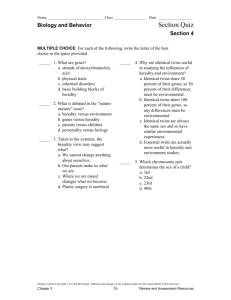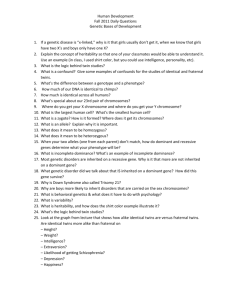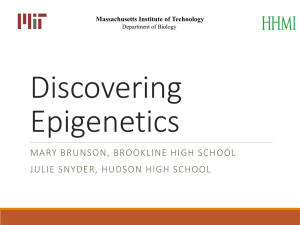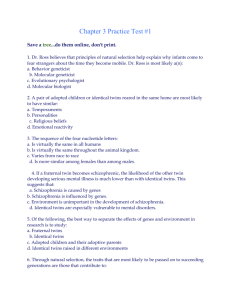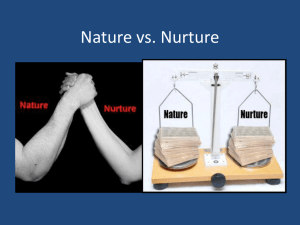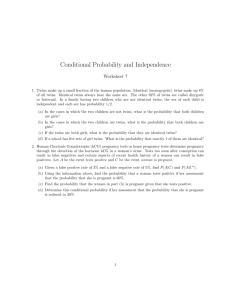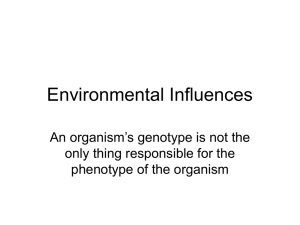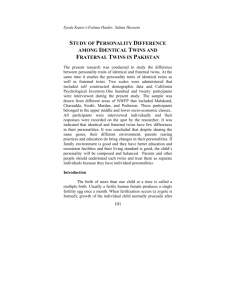Key Terms Notes Annotations behavior geneticists environment
advertisement
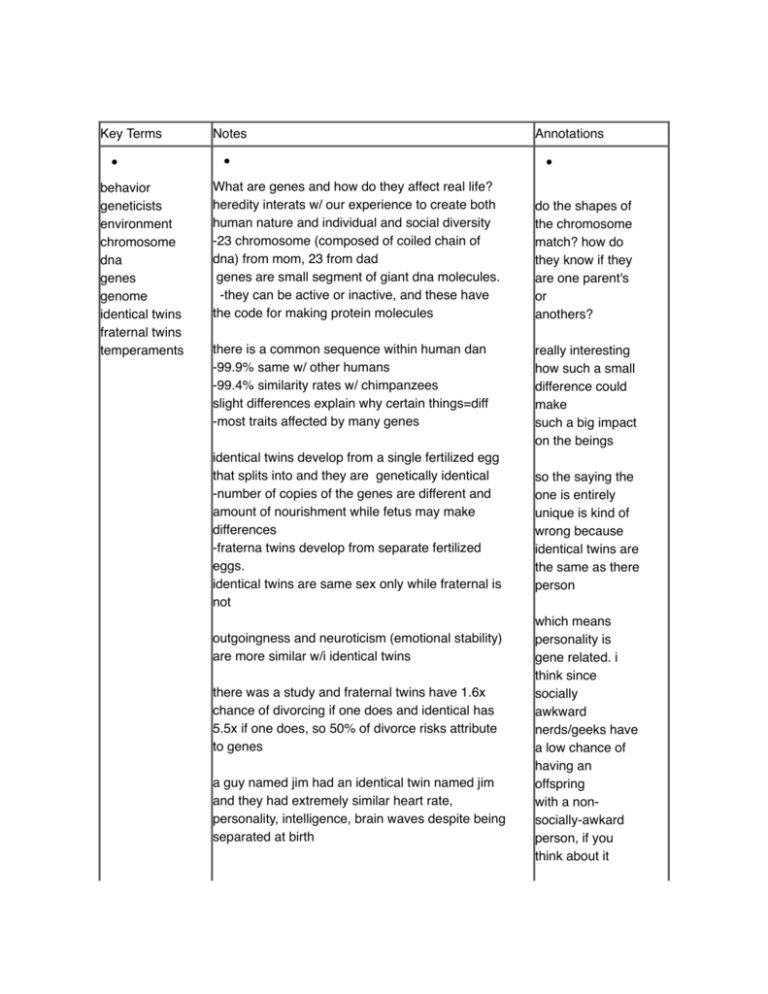
Key Terms Notes Annotations behavior geneticists environment chromosome dna genes genome identical twins fraternal twins temperaments What are genes and how do they affect real life? heredity interats w/ our experience to create both human nature and individual and social diversity -23 chromosome (composed of coiled chain of dna) from mom, 23 from dad genes are small segment of giant dna molecules. -they can be active or inactive, and these have the code for making protein molecules do the shapes of the chromosome match? how do they know if they are one parent's or anothers? there is a common sequence within human dan -99.9% same w/ other humans -99.4% similarity rates w/ chimpanzees slight differences explain why certain things=diff -most traits affected by many genes identical twins develop from a single fertilized egg that splits into and they are genetically identical -number of copies of the genes are different and amount of nourishment while fetus may make differences -fraterna twins develop from separate fertilized eggs. identical twins are same sex only while fraternal is not outgoingness and neuroticism (emotional stability) are more similar w/i identical twins there was a study and fraternal twins have 1.6x chance of divorcing if one does and identical has 5.5x if one does, so 50% of divorce risks attribute to genes a guy named jim had an identical twin named jim and they had extremely similar heart rate, personality, intelligence, brain waves despite being separated at birth really interesting how such a small difference could make such a big impact on the beings so the saying the one is entirely unique is kind of wrong because identical twins are the same as there person which means personality is gene related. i think since socially awkward nerds/geeks have a low chance of having an offspring with a nonsocially-awkard person, if you think about it oskar and jack also were similar twins that were separated, they had similar habits ilke flushing before using the toiler and falling asleep in front of the television critics say "plural of anecdote is not data"- if two strangers spend hours talking about themselves, they would find something similar- but studies show fraternal twins don't show the same similarities as identical twins adopted families who grow up together don't have similar personalities finding: environment shared by a family's c hildren has virtually no discernible impact on their personalities. heredity affects personalities of apes too parenting does matter however-religions and stuff many adopted children score higher in intelligence tests on than biological parents temperament- emotional exciability -intense, fidgety, easygoing, quiet and placid --diifficult babies are moirritable and intense easy babies are cheerful relaxed and predictable slow to warm up infants tend to resist from new people & situations ---more emo. reactive newborns tend to be most reactive 9months olds fearfl 2 year old are shy are 8 year olds. about half will be introverted adolescents -most emotionally intense preschoolers tend to be relatively intense young adults. heredity predisposes it. nerds and geeks are different species from nongeeks and nerds considering that personality such as outgoingness is largely dependet on genes i think personality and such is not depdent on the envionrment becos humans as a species wouldn't grow up to be as good in stressful environments for example, if being at a dangerous environment (dinosaur age) makes one timid it could lower his chance of survival i wonder if it was ethical for the swedish psychologists to divide the identical/paternal twins. i guess it could be if the consent is given by the parent, but considering the high number of twins used and the % of occurrence of twins that probably didn't happen
